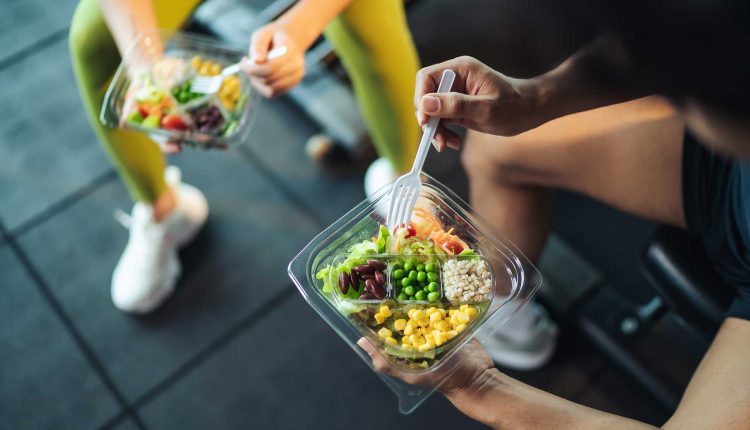BREAKING: Nutrition For Endurance Athletes: Fuelling Peak Performance

In sports, the saying “Train hard, win easy” is often heard. But behind every sprint, lift, swim, and goal scored, there’s a quieter yet equally vital factor—nutrition.
Welcome to Fueling Performance, a new series under Culinary Canvas, dedicated to exploring the specific nutritional needs of different athletes. Whether you’re a marathon runner, a strength trainer, a weekend footballer, or a teen on the field, your body speaks a unique nutritional language, and your plate should reflect that.
In each edition, we’ll focus on one athlete type and break down:
Specific nutritional needs
Common food mistake
A sample day’s meal plan
A simple, energizing recipe crafted for performance
This is not about fad diets or extremes. It’s about food as fuel, recovery, and rhythm,a calm and mindful approach to eating that matches the intentionality of your training.
We begin with the endurance athlete.The runner, the swimmer, the cyclist,who pushes for the long haul and needs fuel that lasts.
The Endurance Athlete
Endurance athletes don’t just move, they sustain long-distance runners, swimmers, cyclists, and rowers push their bodies through extended periods of stress. To do this well, they require a steady flow of energy, powerful muscle recovery, and top-tier hydration. The wrong nutrition plan can lead to early fatigue, injury, or burnout. The right one can mean crossing the finish line strongly.
Let’s break down what their bodies truly need.
Key Nutritional Foundations
Carbohydrates – The Fuel Source
Endurance training demands high glycogen stores. Carbs should make up around 60% of the athlete’s diet. But not just any carbs—complex, slow-burning sources like oats, brown rice, millet, and sweet potatoes.
Protein – Muscle Recovery And Repair
After hours of training, muscles need repair. Aim for 1.2–1.4 g of protein per kilogram of body weight daily. Spread it throughout the day for optimal uptake.
Healthy Fats – Long-Lasting Energy
Fats support longer events and also assist in absorbing fat-soluble vitamins. Go for avocado, nuts, seeds, olive oil, and fatty fish.
Micronutrients – The Silent Helpers
Iron: For oxygen transport (especially key for female athletes)
B-vitamins: Support energy metabolism
Magnesium & Potassium: Prevent cramps and help with nerve function
Antioxidants (vitamin C, E, beta-carotene): Help combat oxidative stress
Hydration & Electrolytes
Sweat doesn’t just lose water,it takes salt, potassium, and magnesium with it. Hydration should begin before training and continue during and after. Include coconut water, bananas, and broth-based soups.
What To Avoid
Sugary sports drinks (opt for natural electrolyte options)
Skipping meals post-training
High-fat or greasy meals pre-workout
Over-reliance on energy bars without whole foods
Sample Meal Plan
Early Morning (Pre-run)
½ boiled unripe plantain + 1 teaspoon groundnut butter
Warm lemon water or light zobo (unsweetened)
Post-run Breakfast:
Pap (ogi) with soy milk + moin-moin
Slice of pawpaw or watermelon
Mid-Morning Snack:
Handful of roasted groundnuts + coconut water
Lunch:
Ofada rice with vegetable sauce (efo riro with ugu, dried fish, and little palm oil)
Cucumber water or fresh tigernut milk
Afternoon Snack:
1 boiled egg + banana
Dinner:
Sweet Potato And Beans Pottage (see recipe below)
Sliced avocado on the side
Warm ginger-turmeric tea (anti-inflammatory)
Recipe Unripe Plantain Couscous With Stir-Fried Ugu And Grilled Chicken
Why it works:
This meal combines complex carbohydrates from plantain couscous, protein from grilled chicken, and micronutrients from ugu. It’s anti-inflammatory, rich in potassium, iron, and vitamin C ideal for muscle recovery and sustained energy.
Ingredients
For Plantain Couscous:
2 medium unripe plantains, peeled
½ teaspoon salt
1 tablespoon olive oil
A pinch of turmeric (optional)
For Stir-Fried Ugu:
2 cups shredded ugu (or spinach as substitute)
1 small red onion, sliced
1 teaspoon olive or coconut oil
1 clove garlic, minced
A pinch of sea salt
Crushed pepper (optional)
For Grilled Chicken:
2 chicken breasts or thighs, skinless
1 tablespoon lemon juice
½ teaspoon ginger powder
½ teaspoon garlic powder
½ teaspoon paprika or Cameroon pepper
½ teaspoon thyme
Salt to taste
Make The Plantain Couscous:
Grate the unripe plantains using the fine side of a grater or pulse in a food processor until couscous-like in texture.
Steam the grated plantain with a little salt and turmeric for 10–12 minutes (wrap in foil or place in a steaming basket).
Fluff with a fork and drizzle with olive oil. Set aside.
Stir-Fry The Ugu:
Heat oil in a pan. Add onions and garlic, stir until translucent.
Add shredded ugu, salt, and pepper. Stir-fry for 2–3 minutes (don’t overcook). Remove from heat.
Grill The Chicken:
Marinate chicken with all spices and lemon juice for at least 30 minutes.
Grill in an oven or air fryer at 180°C for 20–25 minutes (or until golden and cooked through), flipping halfway.
Nutritional Highlights
Complex carbs: Unripe plantain for steady energy
Protein: Lean grilled chicken for muscle repair
Iron & antioxidants: Ugu and garlic
Healthy fats: Olive oil
